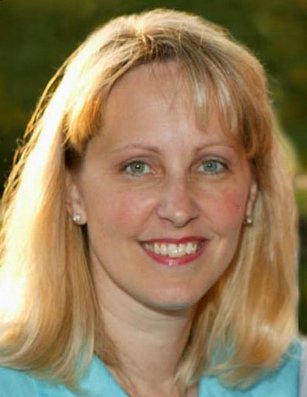
Sandra Glahn, ThM, teaches in the media arts program at Dallas Theological Seminary, where she edits the award-winning magazine Kindred Spirit. The author of six books and co-author of seven others, she is pursuing a PhD in Aesthetic Studies (Arts and Humanities) at the University of Texas at Dallas . She recently released her first solo medical suspense novel, Informed Consent (Cook). She is the co-author of three other such novels, which include the Christy Award finalist, Lethal Harvest.
What’s Informed Consent about?
Jeremy Cramer, the next Einstein of research, is a medical resident specializing in infectious diseases. While working on a way to revive water submersion victims, he makes surprising discoveries, while also living with massive guilt over incidental infections that occur (which he could have prevented). Even as his marriage teeters, his career continues to skyrocket. Then, with a few twists along the way, he finds everything he has fought for threatened by the most personal, most heart-wrenching, choices of all.
I love exploring bioethics, and this book allowed me to consider end-of-life issues, patient rights, a compassionate response to HIV-AIDS…lots of edutainment.
How did you come up with this story? Was there a specific ‘what if’ moment?
The story had a thousand or more “what if” moments. I’m pursuing a PhD in Aesthetic Studies, and I worked on the setting, characters, a lot of the plot, as well as my narrative voice during three novel-writing classes taught by a novelist who writes fiction reviews for Publishers Weekly. And I got some great feedback from fellow students who don’t believe in Christ about ways to address faith issues more naturally. I also took a Dante class, which influenced my choice to give my characters five of the seven deadly sins. (I’m saving the other two for a future work.) But the elements in the plot designed to keep readers up at night came through a brainstorming session with medical doctor, William Cutrer, with whom I’ve coauthored three medical novels.
Do you ever struggle with writer’s block? If so, how do you overcome it?
Never. I know…I almost feel guilty saying it. I attribute that to my second grade teacher, who had me write one story a day and raved about whatever I wrote. By the time I was old enough to realize nobody’s that good, it was too late. A brain has two sides, right? The creator and the editor. And she allowed the creator to run wild without introducing the editor. Ever. And as a result I have an extravagant sense of confidence about the first draft. Then I re-read it, and it stinks. Totally. But it’s too late. It’s already out there. And nobody ever complains about editor’s block. I’m not saying I recommend her style. Surely a second-grade teacher should help a student with grammar and spelling, right? But she never mentioned it. And that approach worked for me.
What is the most difficult part of writing for you or was when you first started on your writing journey?
I still struggle with expressing character emotion. I feel like I’ll insult the reader if I stop to say “the shock of the news hit like a two-by-four in the back of the head.” I figure if I tell the horrible circumstance, the reader has enough imagination to feel what any normal soul would feel. I want to say simply “His dad died in a plane crash,” and let the reader fill in the emotional blanks. Yet everybody experiences shock and grief differently. For some the room spins. For others it shrinks. For some it grabs in the pit of the stomach. Or it feels like a physical jolt. It’s part of my job as a developer of character to choose how this character will react and respond. When the emotions get intense, I need to slow down and let the reader enter the character’s head. But I’d rather get on with the plot.
How did you get started in the writing world?
After I graduated from college, I worked for a 700-employee financial services company where my boss thought I had some writing talent. I got my start twenty years ago working as the editor of employee publications. When the company sold, everybody got laid off. I mourned over leaving a job I loved, but it was the best thing ever for my career. Suddenly I had 700 business contacts all over Dallas.
I started a free-lance writing business, and one of my first clients was the music producer for Barney and Friends. Another client was Dallas Theological Seminary (DTS). I edited (and still edit) their magazine, Kindred Spirit. I dabbled in some classes in DTS’s media arts program, and I learned about Joseph Campbell and myth and about Hebrew narrative and Gospel storytelling. I figured if I could tell better stories, I’d write more engaging non-fiction. I had no aspirations ever to write a book, certainly not a novel!
Thanks to Sandra Glahn!! For more information visit:
Sandi’s blog site:
http://aspire2.blogspot.com/
Sandi’s website:
http://www.aspire2.com/index.html
Blessings!
Beth
